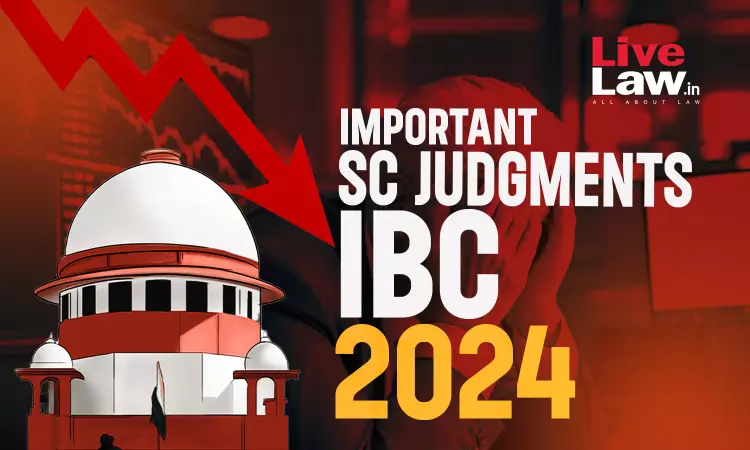Insolvency & Bankruptcy Code : Important Judgments By Supreme Court In 2024
Debby Jain
31 Dec 2024 9:57 AM IST

Next Story
31 Dec 2024 9:57 AM IST
As the year 2024 nears its end, LiveLaw brings to you a summary of important Supreme Court judgments of the year rendered in connection with the Insolvency and Bankruptcy Code, 2016. The same are as follows:1. IBC - Is Dissenting Financial Creditor Entitled To Minimum Value Of Security Interest? Supreme Court Refers To Larger Bench, Doubts Precedent Case: DBS Bank Ltd Singapore v. Ruchi...
